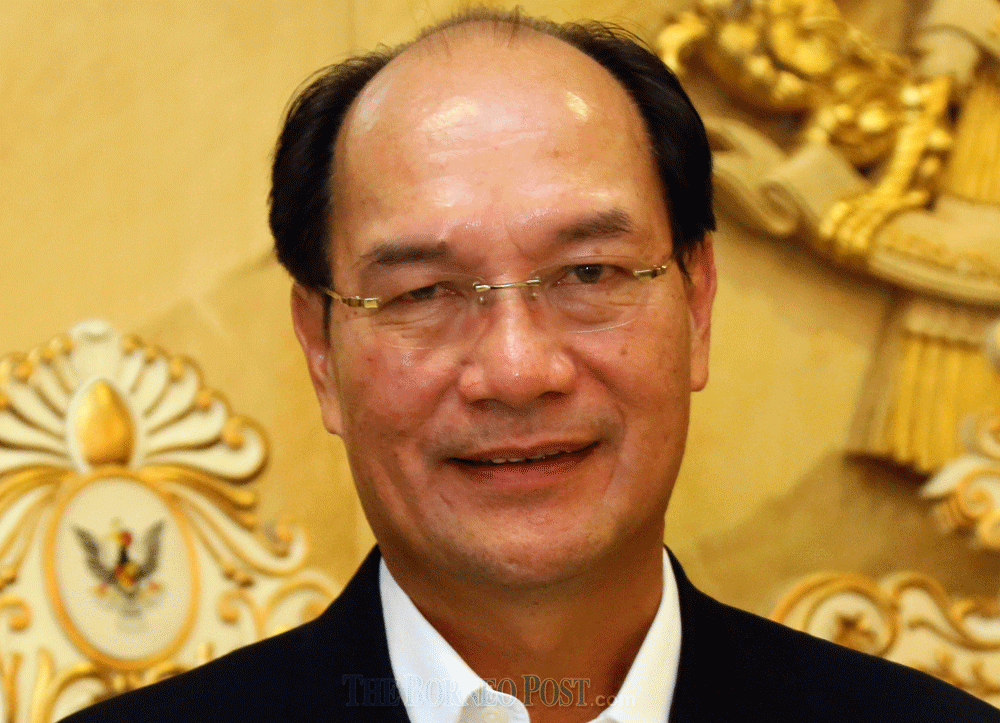
Dato Gerawat Gala
MIRI: Being the national oil company that complies with local legislations in other countries where they operate, Petroliam Nasional Bhd (Petronas) should show a good example to other production-sharing contractors by complying with Sarawak laws, particularly the state’s Oil Mining Lease and Sales Tax Ordinance.
Mulu assemblyman Dato Gerawat Gala, who pointed this out, said Petronas should be ashamed for refusing to comply with and challenging Sarawak laws when their own production-sharing contractors like Shell, Murphy and Nippon had been compliant.
“This is the third time Petronas has lost their case against the Sarawak government in relation to the State Sales Tax of five per cent on petroleum products produced from Sarawak territory and sold outside Sarawak,” he said.
Gerawat was commenting on the High Court decision to dismiss Petronas’ application of challenging the legality of the five per cent State Sales Tax on Friday.
“The first case Petronas lost was in their application in the High Court to recuse the judge from hearing their case. Second time was in the Court of Appeal when they appealed against the decision of the High Court judge.
Thus far, the score is 3-0 for Sarawak. The fourth case pending before the court is Sarawak’s claim against Petronas for the five per cent Sales Tax incurred since January 2019, which Petronas refuses to pay,” he said.
Gerawat said the first three cases showed that Petronas was all out to deny the state of its five per cent Service Tax, and he would not be surprised if Petronas filed an appeal in the Court of Appeal against the High Court’s decision.
“It must be noted that Petronas has taken our oil and gas rights and revenues since the Petroleum Development Act (PDA) was enacted 46 years ago. Sarawak has only been getting five per cent royalty on gross for the last 46 years, whereas the federal government has been getting five per cent royalty on gross production, 38 per cent tax under the Petroleum Income Tax Act (PITA) and all the dividends from Petronas and Carigali.
“If Petronas and the federal government were sincere in helping Sarawak, they could reduce the 38 per cent tax under PITA (Petroleum Income Tax) to 33 per cent and give the five per cent to the state,” he said.
Gerawat added that Sarawak – despite being the largest state in Malaysia with an area almost the size of the peninsula – had been left far behind Peninsular Malaysia in terms of basic infrastructure and essential services, especially in the rural areas. Thus, additional revenue sources was necessary to further develop Sarawak, he said.
“Petronas has lost a lot of goodwill among Sarawakians by challenging the Sarawak government over the five per cent Sales Tax. This will not be good for Petronas’ long-term business and operations in Sarawak,” he remarked.
Gerawat said over the years, Sarawakians felt that Petronas had not been very proactive in accommodating the state’s aspirations and interests. One good example, he said, was the relatively insignificant involvement of Sarawak-owned companies (majority shareholders, board members and top executive positions held by Sarawakians) in the oil and gas industry, compared to those from outside Sarawak.
“Petronas Carigali has been contracting out substantial upstream works to its own 100-per cent subsidiary, instead of giving the work to other companies. This shows Petronas’ strategy to maximise their participation and profit margin in the oil and gas industry, without much thought about having an equitable sharing of the oil and gas revenue with their host, which in this case is Sarawak.
“The majority of our ordinary rakyat in Sarawak may not fully understand the commercial model, which ensures maximum revenue flow and benefit for Petronas, throughout the whole upstream and downstream business operation and process.
“Petronas should act like other major oil companies operating in other parts of the world, where they respect and comply with the local jurisdictions and laws and are responsive to the needs of their host states.
“Petronas cannot continue to treat Sarawak as it had over the last 46 years without any change. Sarawakians are better informed now and have progressed over the last 36 years – they expect to be treated equitably and fairly.
“To maintain whatever little goodwill that is left for Petronas for their long-term operation in Sarawak, it would be wise for it to withdraw and discontinue its court case against the Sarawak government and start paying the five per cent service tax,” he said.
Gerawat added that it was under the previous Pakatan Harapan (PH)-led federal government that Petronas had been reluctant to pay the Sales Tax, and when they chose to challenge the Sarawak government in court.
“It is our hope that the newly-appointed Prime Minister could assist by getting Petronas to withdraw all court cases against the Sarawak government in relation to the Sales Tax, and comply with our state laws and start paying the Sales Tax, with effect from January 2019,” he said.
